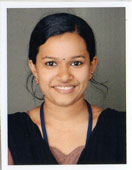Department of Mathematics and Data Science
“Without mathematics, there’s nothing you can do. Everything around you is mathematics. Everything around you is numbers” – Shakuntala Devi, The human Computer
Mathematics is a broad, abstract science that deals with concepts such as numbers, shapes, quantities, and patterns. It is a fundamental intellectual tool in problem-solving. It serves as the foundational language of data science, underpinning a wide array of applications across diverse domains. In predictive modelling, mathematical techniques enable financial institutions to anticipate market movements, assess creditworthiness, and detect fraudulent activities. In image processing, core mathematical disciplines such as linear algebra and calculus facilitate complex tasks like object recognition and feature extraction in computer vision systems. The healthcare sector benefits from mathematical models that support early disease prediction, interpret medical imagery, and inform personalized treatment strategies. In marketing, the use of probability theory and analytics drives data-driven decisions through customer segmentation, campaign optimization, and churn analysis. Collectively, these applications highlight the indispensable role of mathematics in decoding data complexities, supporting innovation, and advancing intelligent decision-making across industries.
About the Programme B.Sc Mathematics (Honours)
The B.Sc. Mathematics with Data Science is a dynamic four-year undergraduate program, recognized by the University Grants Commission (UGC) and aligned with the National Education Policy (NEP) 2020. It is meticulously designed to integrate rigorous mathematical theory with practical, application-oriented data science skills.
This interdisciplinary program offers students the opportunity to deepen their understanding of mathematical reasoning while developing strong competencies in computing and data analysis. The curriculum provides comprehensive training in core areas such as pure and applied mathematics, statistics, machine learning, and artificial intelligence. Emphasizing modern tools and techniques, it equips students to analyze, interpret, and visualize complex data for real-world decision-making and predictive modeling.
Graduates of this program will possess a versatile skill set that blends analytical depth with technical proficiency—preparing them for advanced studies or immediate employment across industries such as information technology, business analytics, research, finance, and academia. With an emphasis on both intellectual rigor and industry relevance, the program nurtures the next generation of data-savvy mathematical thinkers ready to meet emerging global challenges.
The Minor in Mathematics offers a wide variety of mathematics and statistics courses for students in degree programs such as science, engineering, commerce, education and the humanities.
Eligibility
A pass in Plus Two/ CBSE XII or VHSE with Mathematics as a course is preferred. The course contain advanced higher mathematics topics on differential and integral calculus and practical with multivariate data.
Program Structure
There will be semesters (4 years) in Credit based structure. Minors can be chosen in their interested areas. But it is better to choose minors in the areas of Data science offered by the Departments of Statistics and Compute Science. If the student wants to change their major, it is advised to select Double Minor. There will be 60 hours internship during the programme and 75% attendance is essential to write the University Examination.
VISION
- To establish a distinguished Centre of Excellence in Mathematics and Scientific Computing that promotes rigorous interdisciplinary research and cultivates analytical reasoning, with the aim of equipping future generations to address complex real-world problems and contribute meaningfully as globally competent professionals.
Mission
- To deliver high-quality education in Mathematics, grounded in conceptual rigor and pedagogical innovation.
- To foster a vibrant culture of research by encouraging inquiry-driven learning and the adoption of contemporary methodologies.
- To uphold excellence in the creation, dissemination, and application of mathematical knowledge.
- To cultivate a scholarly community that recognizes, nurtures, and celebrates the mathematician inherent in every learner.
Faculty
| SI No. | Name of the Faculty | Designation | Contact Details | Photo | Profile |
| 1 | Dr. T. Unnikrishnan | Assistant Professor( HOD in Charge) | 9400839525 unnikrishnan@govtcollegethrissur.ac.in |  |
View More |
| 2 | Naveen V V | Assistant Professor on Contract | 7736379971 naveenvv10@gmail.com |  |
|
| 3 | Soorya Menon K | Assistant Professor on Contract | 9526080611 sooryamenon407@gmail.com |  |
View More |
| 4 | Dr. Sujesh A S | Assistant Professor on Contract | 9605137272 sujeshstc@gmail.com |
|
After B.Sc. Mathematics and Data Science program will:
- Acquire a strong foundational understanding of mathematics and data science, enabling them to thrive in multidisciplinary professional environments.
- Be well-prepared to pursue advanced studies and engage in scholarly research in mathematics, statistics, data science, and allied disciplines.
- Demonstrate analytical and computational proficiency in formulating and solving real-world problems using data-driven approaches.
- Develop technical acumen and interpersonal competencies essential for successful careers in education, information technology, business analytics, and related fields.
Program Outcomes (POs) Upon successful completion of the B.Sc. Mathematics and Data Science program, graduates will be able to:
- PO1: Disciplinary Knowledge Demonstrate comprehensive knowledge in mathematics and data science, integrating global perspectives and current developments to evaluate and synthesize existing and emerging ideas.
- PO2: Critical Thinking Analyze complex mathematical and data-driven problems, apply independent judgment, and generate innovative solutions within theoretical, applied, and policy-driven contexts.
- PO3: Problem Solving Employ lateral thinking and creativity to frame, analyze, and solve mathematical challenges, evaluating multiple strategies while considering societal, cultural, environmental, and ethical dimensions.
- PO4: Research Aptitude Conduct systematic literature reviews and experiments; adopt suitable research methodologies and tools to design, analyze, and interpret results; and contribute meaningfully to scholarly advancement in mathematics and computational sciences.
- PO5: Technological Proficiency Select and utilize modern IT tools, software environments, and predictive modeling frameworks effectively, with awareness of their capabilities and limitations.
- PO6: Teamwork and Multidisciplinary Engagement Demonstrate effective participation in collaborative and multidisciplinary settings, exhibiting self-management, inclusive decision-making, and a commitment to mutual learning.
- PO7: Project Management and Financial Literacy Apply mathematical reasoning and managerial principles to plan and execute projects efficiently, considering financial viability and interdisciplinary integration.
- PO8: Communication Skills Communicate complex mathematical and statistical ideas clearly and effectively through technical documentation, presentations, and dialogue with academic, professional, and public audiences.
- PO9: Lifelong Learning Exhibit a sustained enthusiasm for continuous learning and self-improvement, adapting to evolving domains and technologies.
- PO10: Ethics and Social Responsibility Uphold ethical standards in research and practice, appreciate the societal impact of scientific endeavors, and contribute toward equitable and sustainable development.
- PO11: Independent and Reflective Practice Critically assess personal academic and professional actions, embrace feedback, and implement corrective strategies for continuous improvement.
- PO12: Environmental and Sustainability Awareness Understand and evaluate the environmental implications of mathematical modeling and data-based decisions, contributing to responsible and sustainable solutions.
Program Specific Outcomes (PSOs) Graduates of the B.Sc. Mathematics and Data Science program will be able to:
- PSO1: Employ mathematical reasoning and analytical methodologies to address and resolve problems across interdisciplinary domains, integrating knowledge from the sciences, engineering, and humanities.
- PSO2: Demonstrate proficiency in abstract mathematical structures, data science principles, and mathematical modeling techniques, essential for theoretical exploration and real-world application.
- PSO3: Analyze, interpret, and visualize data using appropriate statistical and computational tools to support data-driven decision-making in diverse professional contexts.
Career Opportunities
Mathematics graduates find employment in virtually any field in which quantitative comfort and reasoning is required: computing, finance (including banking and insurance), government, actuarial science, teaching and research. Postgraduate opportunities likewise exist in mathematics and related disciplines: engineering, business, economics, finance, computer science and law.
Students can get wide opportunities through further expertise after graduation. There are possibilities for efficient Mathematics Teacher, Researcher, Data Engineer, Machine learning engineer, Data analyst, Data Manager, Data Architecture, Statistician, Actuary, Optimization Specialist, Financial Engineer, Risk assessor, Business Intelligence Analyst.
Earn While You Learn – The Math Lab
The students have the opportunity to get in touch with mathematics here. The Math Lab is an open, friendly place, for our students. There is a special Library for this purpose. There are various tools for knowing the concepts of Basic Mathematics in the Lab. The students can achieve the ability to communicate mathematics clearly. Through this they can earn pocket money through various tuitions and creative videos works during the study. If you are in the dark about any of your math courses, the Centre can help you see the light! Come to us with your math questions. Our tutors can provide help for all levels.
Seminars and Workshops
There will be various programmes for interacting eminent scholars in the fields of Mathematics who are experts in Modern Mathematics as well as Ancient Mathematics. Most of the programmes were in association with Madhava Ganitha Kendram and Indian Knowledge System under Ministry of Education, Government of India.
Research Projects
“Weather Patterns in Kerala through Planetary Positions” , Research Project funded by Indian Knowledge System, under Ministry of Education, Government of India is running in the Department.
Contact
Department of Mathematics and Data Science
Sri. C. Achutha Menon Government College Thrissur
Email : maths@govtcollegethrissur.ac.in
Academic Activities 2024-25
07/11/2024: മലയാളദിനാഘോഷം : ക്വിസ് മത്സരം – മലയാള വാക്കുകളിലെ ഗണിതം

